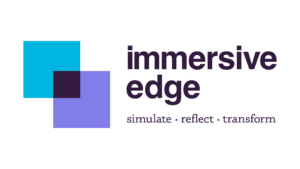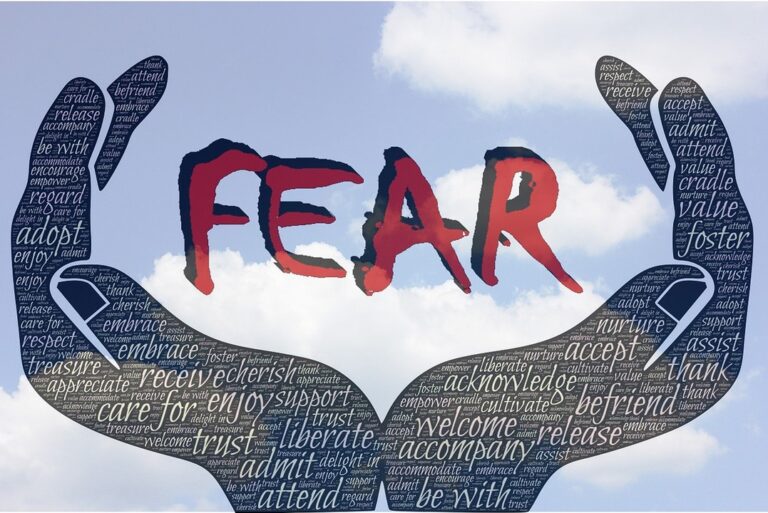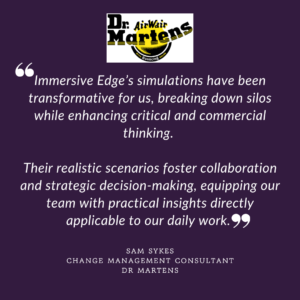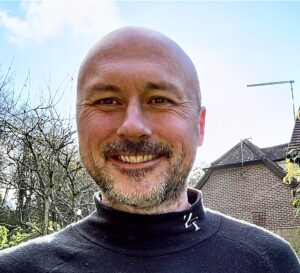“It’s like we were an under 7s football team and someone booted the ball and we all frantically chased after it”
I could add another 40 or so similar quotes from participants when we play our business simulations with 16-65 year old participants, whether school children or senior leaders in large corporates over the years. That quote in itself is so representative of real-world business challenges and approaches though, isn’t it? When fear is a factor…
Fear is often seen as an obstacle to success when it comes to learning. It can be viewed as something that paralyses, discourages, and convinces us to stay within our comfort zones. But what if fear wasn’t viewed as an enemy? What if, instead, it was embraced as an essential and intrinsic part of learning and personal growth? In experiential learning—an approach that emphasizes learning through direct experience—fear plays a pivotal role in pushing individuals beyond their perceived limitations, fostering resilience, and ultimately leading to transformative growth.
In a previous blog post, I wrote about my 1988 first experiences of getting on a skateboard, and invariably falling off reasonably quickly. You can re-read that one here before continuing for a recap in the context of experiential learning, and the David Kolb Learning Cycle.
When you look at the Kolb cycle, it’s pretty obvious which part of it would give you the most fear…concrete experience! Especially at a first attempt to actually do something (drive a car, abseil, snorkel, swim, whatever floats your boat). That’s precisely why the cycle is a cycle, and requires being completed several times before the fear that hits you in that first concrete experience starts to turn into confidence, proficiency, enjoyment and even mastery at a relatively rapid pace compared to traditional learning methods.
After all, no-one ever learnt to ride a bike whilst reading a manual, right?

Experiential Learning: A Recap
Built on the relatively simple yet eminently powerful concept that the only way to get people to believe in an idea is to get them to believe it was their own idea in the first place, ‘experiential learning’ is an educational philosophy that emphasizes learning through direct, hands-on experiences. It goes beyond simply repetitive memorization and passive absorption of knowledge, encouraging learners to actively engage with the material. This approach is built on the idea that people learn best by doing, reflecting, and applying their knowledge in real-world situations.
In the 1980s, David Kolb (Harvard University) wrote down the experiential learning cycle we see here.
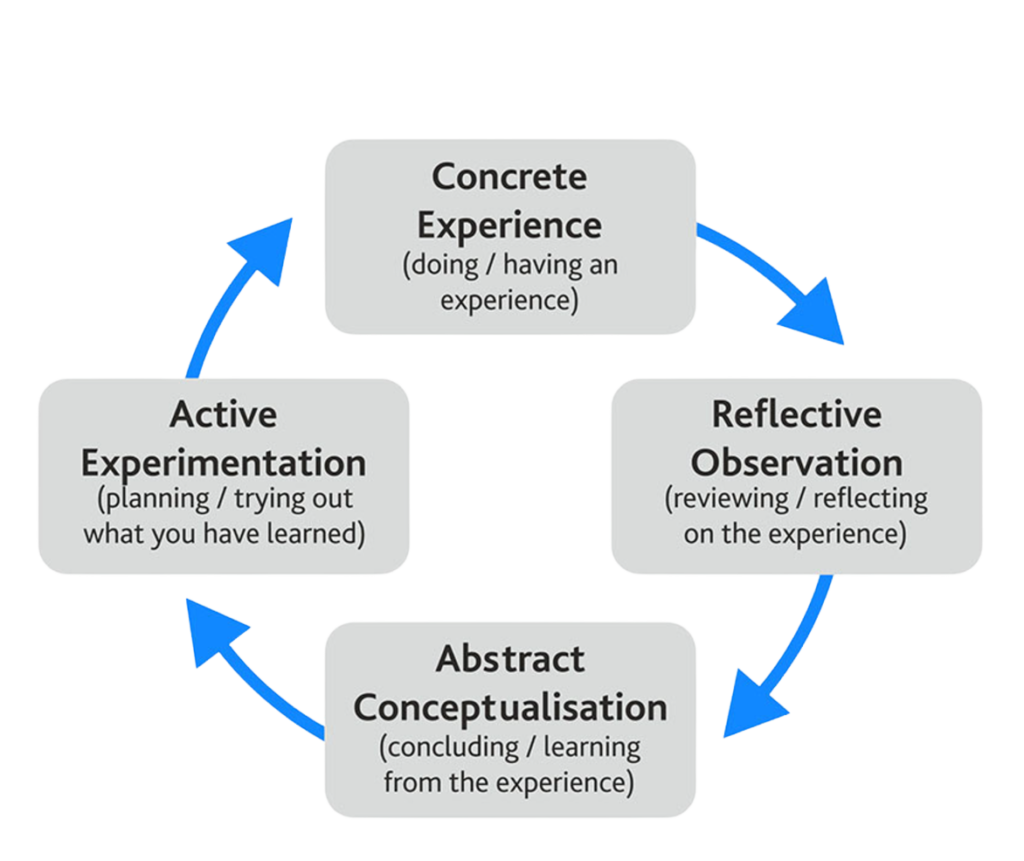
It starts very simply with a concrete experience, so in my case just getting on the skateboard and having a go. I then undertook a period of reflective observation to consider how the experience made me feel. Was it positive? Negative? This led to the abstract conceptualization phase whereby I’m making conclusions about the experience and thinking “When I get back on the board, what’s my strategy this time? What do I want to do differently to have more success?”
I then move into active experimentation to put directly into practice my new and revised approach and strategy for being more competent on the second attempt, which as the attempts increase, becomes more and more fruitful each time as I repeat the cycle a few times.
What Problems does Experiential Learning Address?
Whilst there is always a valuable place for traditional learning methods, it is also fair to say based on fairly extensive research, that there are some well-evidenced problems with those traditional methods, such as:
* Lack of engagement
* Workforce resistance
* Not always relevant
* Lacks contextual feedback
* Information overload
The Valuable Role of Fear in Learning
Fear arises when we perceive a threat, whether physical, emotional, or psychological. In experiential learning, this fear often stems from uncertainty, the possibility of failure, or stepping into the unknown. But rather than being a roadblock to learning success, think of fear as a relevant and important catalyst for growth.
Fear Signals Growth Opportunities
When we feel fear, it often indicates that we are at the edge of our current abilities. Whether it’s public speaking, climbing a mountain, or leading a team, fear highlights areas where we have the potential to grow. Instead of retreating, learners who embrace fear as a natural part of the process can use it as a signpost pointing toward meaningful development
Fear Encourages Resilience
Overcoming fear builds resilience, a crucial skill in both personal and professional life. When individuals face fears head-on—whether failing at a task, navigating an unfamiliar environment, or engaging in difficult conversations—they develop the ability to manage adversity. Resilience grows when we learn that setbacks are not the end but rather opportunities to recalibrate and try again.
Fear Enhances Problem-Solving and Adaptability
In high-stakes situations, fear heightens awareness, sharpens focus, and pushes individuals to think critically. Experiential learning often places individuals in unpredictable scenarios that require quick thinking and adaptability. Fear forces learners to engage fully, respond dynamically, and develop creative solutions to challenges.
Fear Strengthens Confidence
Every time a learner overcomes fear, their confidence increases. Small victories over fear accumulate, reinforcing the belief that challenges can be tackled and that discomfort leads to progress. This newfound confidence translates into a greater willingness to take risks, explore new ideas, and step into leadership roles.
Organisational Change: A Case in Point
Fear of Change: There is no better example of something that grips people with fear than when something is about to change, either expectedly or unexpectedly, and in a personal or professional context.
Many have written about it, many are authorities about it. I encourage you to read this great article by Change & Team Development Consultant Emma Somers, “Is your organisation ripe for change or are you just rearranging the deckchairs?” which explores how organisations deal with change at a surface level, and the implications and often difficult repercussions of so doing. Check out her LinkedIn profile here too.
Sam Sykes, Change Management Consultant at Dr Martens reflects below on how experiential learning has been a critical part of embracing the learning journey through periods of change within her organisation.
5 Strategies to Harness Fear as a Productive Learning Force
1. Reframe Fear as Excitement
The physiological response to fear – elevated heart rate, heightened senses, and increased adrenaline – is almost identical to the body’s reaction to excitement. By mentally reframing fear as excitement, learners can shift their perspective from avoidance to anticipation. Instead of saying, “I’m scared to do this,” try, “I’m excited to see what happens.
2. Start Small and Build Momentum
Facing fear doesn’t mean diving headfirst into the most daunting challenge. Instead, individuals can start with smaller, manageable experiences that push them slightly out of their comfort zone. Success in these smaller challenges builds confidence, making it easier to tackle bigger fears over time.
3. Embrace Failure as a Learning Tool
One of the biggest barriers to embracing experiential learning. However, failure is an essential part of growth. When learners understand that failure is not a reflection of their worth but a stepping stone to improvement, they become more willing to take risks and experiment with new approaches.
4. Cultivate a Supportive Learning Environment
Fear is easier to navigate when learners have a supportive environment. Whether in a classroom, workplace, or adventure setting, fostering a culture where individuals feel safe to take risks, express concerns, and receive constructive feedback is crucial for embracing fear productively.
5. Reflect and Reinforce Learning
After experiencing fear and overcoming a challenge, it’s essential to reflect on the experience. What worked? What didn’t? How did fear play a role in the learning process? Reinforcing these insights through journaling, group discussions, or personal reflection helps solidify growth and prepare learners for future challenges.
At Immersive Edge, we pride ourselves in drawing out all the innovations and ideas that exist in any online or in-person learning environment by giving participants valuable opportunities to embrace a bit of fear and chaos whilst running their own business, always supported by a global team of expert facilitators to facilitate discussions between levels of gameplay. Contact us, [email protected], and we’ll give you an overview of how we did so successfully in multiple public and private sector settings.
Elton Daddow has been working in the field of Higher Education for over 20 years, 13 of which were spent in Higher and Further Education partnership roles at FTSE100 Pearson in the UK through their digital transformation journey from print publisher to becoming the leading digital content and assessment provider in the education sector.
He is passionate about embedding technology-enhanced learning solutions and initiatives into CPD, teaching and learning strategy to support broad strategic goals for public and private sector clients.
Elton now works in a global role as Commercial & Learning Director at Immersive Edge, delivering experiential learning business simulations with clearly defined learning outcomes that surface and tackle common business challenges in a safe space, using advanced game technology, experiential learning, and behavioral dynamics to increase retention, support core skills development and create lasting connections.
